Families are complicated—in real life, and especially in fiction. While prickly family dynamics aren’t usually fun to navigate in the real world, they can make for fantastic stories. In fact, some of my favorite books in recent years (Ask Again, Yes, A Place For Us, and This Must Be the Place all come to mind) explore complex family dynamics. The books in each of today’s batch of reviews differ in style and genre, but they share the common thread of families facing difficult circumstances. A couple of these are Christmas books, but both (especially The Christmas Letters) could be read and enjoyed any time of year.
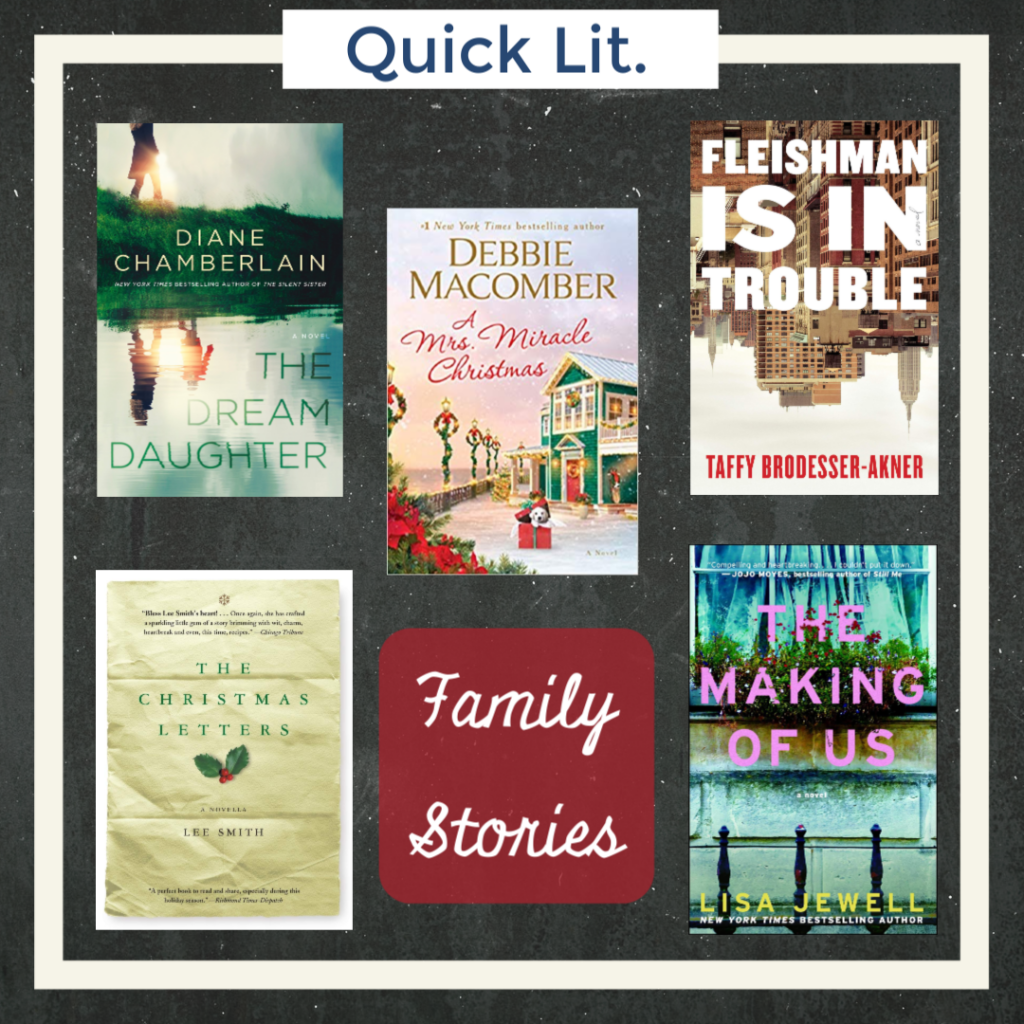
Fleishman Is In Trouble, by Taffy Brodesser Akner: At age 41, Manhattan doctor Toby Fleishman is recently divorced and suddenly finds himself thrust back into the world of dating, where he discovers—much to his delight—that the dating scene has dramatically shifted in the decades since he was last single. Toby dives headfirst into the world of dating apps, sexting, and one night stands, but his sexual escapades are cut short when his ex-wife goes missing, leaving him to care for his tween son and daughter. While adjusting to his family’s new normal, Toby reconnects with his college friends Libby and Seth. Libby, who is struggling in her new role as a stay-at-home mom, is also the novel’s omniscient third-party narrator. (I’m on the fence as to whether I found this narrative structure creative or too distracting. Though Toby’s story remains at the center of the novel, we receive brief glimpses and insights from Libby into the types of struggles faced by women that self-absorbed men like Toby could never understand.)
If I were one to quit books midway through, I would have abandoned this one early on. The first several chapters are pretty explicit, divulging more details about Toby’s rampant sex life than I cared to hear. I was put off by the characters’ selfishness and vanity and saw this book as nothing more than an unrelatable tale of a midlife reawakening. However, as the novel unfolds it proves itself to be so much more: Brodesser-Akner has provided us with an insightful exploration of marriage and divorce, of misaligned values and unfortunate misunderstanding, of the ways that we perceive and interpret our circumstances and relationships, and of the place women fit into a male-centric narrative. This last point was the one I found most intriguing: the women at the fringes of this novel are subjected to victim-blaming, a loss of reproductive rights, gas lighting, objectification, and unbalanced expectations. These themes are subtle yet thought-provoking, and I was impressed by Brodesser-Akner’s knack for weaving in these topics in a way that manages to feel both natural and uncomfortably abrasive.
By the end of the novel (what an ending!), I was glad that I had not thrown in the towel. I found the last section particularly compelling, with a lot to contemplate. If you can get past the crudeness and deplorable characters, this is a smart, humorous, and deceptively poignant read. With so much potential for discussion, it would make an excellent book club selection.
My Rating: 3.5 Stars.
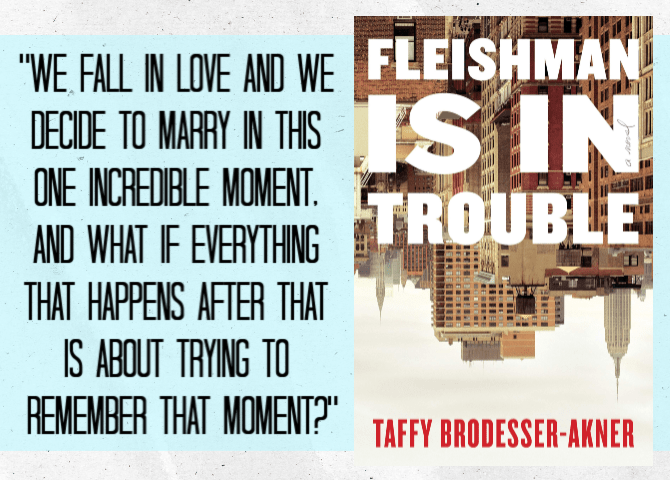
The Dream Daughter, by Diane Chamberlain: In 1970, Carly Sears is an expectant mother whose husband was recently killed in the Vietnam War. When Carly discovers that her unborn daughter has a heart defect that will almost certainly be fatal, her physicist brother-in-law informs her that he can help her save her daughter: by traveling through time to the year 2001, Carly will be able to undergo a surgery that will save her baby. Carly agrees to the risky venture and soon finds herself in a future world where the Vietnam War is a distant memory, and devices like microwaves and cellphones and computers are part of everyday life. Carly is willing to tolerate this strange world for a while if it will save her child, but it remains to be seen whether the procedure will be effective and, perhaps even more frightening, whether Carly will ever be able to return to her own time.
I’ve only read one other book from Diane Chamberlain and wasn’t all that impressed, so I was worried this book wouldn’t be for me, but I was happy to be proven wrong. Time travel books are my jam, especially books in which the time travel is a plot device and not the plot itself, as is the case with The Dream Daughter. The story here is intriguing and I enjoyed viewing the twenty-first century through Carly’s 1970s eyes. While I’m certainly glad I didn’t read this while I was pregnant, I was moved by Carly’s experience and her sacrificial love for her daughter.
The book is filled with heartbreaking moments, and though it occasionally veers into emotionally manipulative territory, the writing is poignant without being overwrought. Carly is a sympathetic character who demonstrates admirable courage, selflessness, and resourcefulness. While I hated the ending, this is a book that will stick with me for a long time.
One caveat: I wouldn’t recommend this on audio. The performance is well done, but it bothered me that both narrators (a man, and young woman who is supposed to have a southern accent) were read by a My accent-free middle-aged woman.
My Rating: 4 Stars.
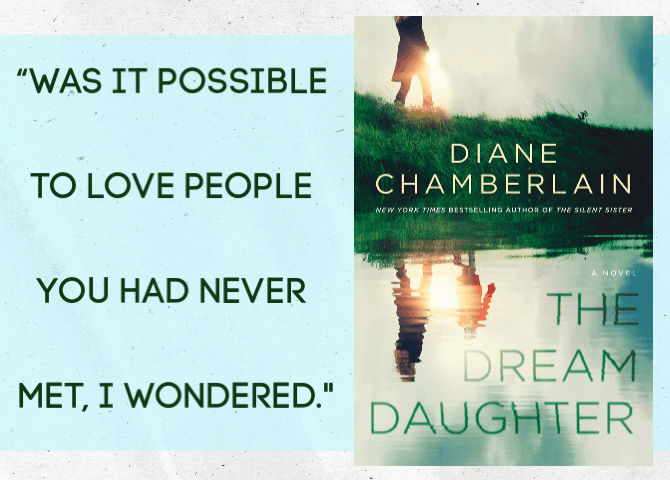
The Making Of Us, by Lisa Jewell: Twenty-nine-year-old Lydia lives in a mansion in London, leading the life of a millionaire thanks to the sale of a chemical invention in her earlier twenties. Her life couldn’t be further removed from her poor Welsh upbringing. But Lydia is forced to revisit her roots when she receives an anonymous package telling her that the only father she ever knew was not her real dad, that she was conceived by a sperm donor. Lydia’s quest to find her biological family leads her to Dean, a 21-year-old druggie whose girlfriend recently died giving birth to their daughter, and Robyn, a college student who is searching for her biological family because she fears her new boyfriend may actually be her brother. Separately and together, the three siblings attempt to uncover their identities and purposes as they explore their pasts and determine what their unconventional parentage might mean for them.
Meanwhile, a Frenchman in hospice care is slowly fading away. In his final days, he confides his regrets to his girlfriend and reflects on his legacy—the four children he fathered, but never met.
This is unlike the other Lisa Jewell books I’ve read, which have all been edge-of-your-seat mysteries. This is a quiet novel with a few surprises, but no suspenseful component. The book dives into important themes of family, responsibility, and identity through a story I found engaging, if not entirely original. The characters here are less polished than those in Jewell’s subsequent books (this was published in 1999) and the plot is sentimental and a little too tidy to be believable. Still, this is a worthwhile read that presents some intriguing food for thought.
My Rating: 3.5 Stars.
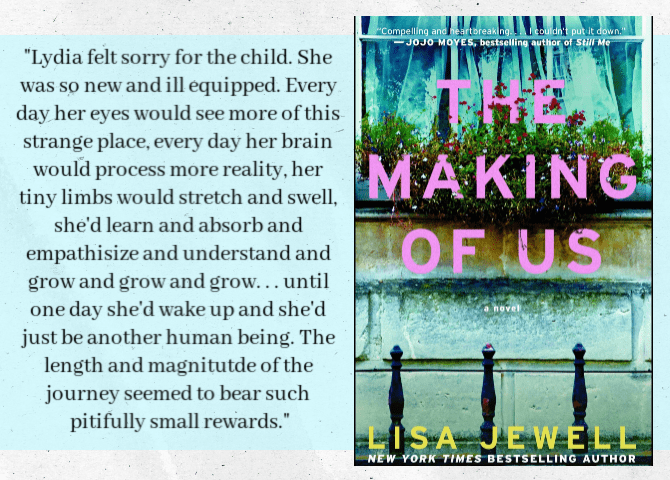
A Mrs. Miracle Christmas, by Debbie Macomber: Christmas is difficult this year for Laurel and her husband Zach. After a battle with infertility, followed by multiple roadblocks in their attempts to adopt, they’ve lost all hope of becoming parents. Added to Laurel’s worries is the failing health of her grandmother, Helen, whose dementia has reached the point where an in-home caregiver is necessary. Help comes in the form of Mrs. Miracle, a caregiver whom Helen is convinced is an angel. And true to her name, miracles do begin happening for Laurel and her family once Mrs. Miracle has arrived.
This Christmas story is terribly predictable and cheesy, yet I knew what I was getting into when I started a Debbie Macomber Christmas book, and I have no regrets. Laurel and Helen are endearing protagonists with a lovely grandmother/grandhild dynamic. The infertility story was painful for me to read but filled with hope. And though I can’t vouch for the theological accuracy of Mrs. Miracle’s character, I found her to be a delight. Growing up, Touched By An Angel was my favorite television show and this book reads like an episode of that beloved feel-good drama.
My Rating: 3.5 Stars.
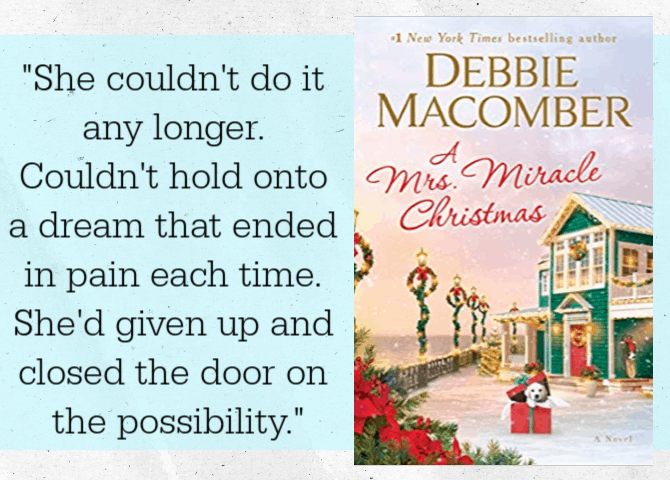
The Christmas Letters, by Lee Smith: The Christmas Letters is a novel whose title explains it all: it’s the story of three generations of women, told through the annual Christmas updates they send out to friends and family. Their letters give us glimpses into life in the 1940s through the 1990s, from the broader historical events and cultural shifts taking place, to the small-scale happenings in their family lives.
I love how realistic this book seems, as though we are actually reading through a family’s collection of Christmas letters. There are the references to “off-scene” happenings that readers of the letters would have known about, as well as the kinds of intimate details that occasionally make it into this type of correspondence. There is nothing particularly remarkable about these women or their families, and their generic nature is exactly what makes this book work so well. I only wish the letters extended further back and into the present day, so that we could learn more from them because in reading their letters, I felt as though I was connecting with distant family friends.
Though technically a Christmas book, this could be enjoyed any time of year as the content itself isn’t seasonal. Highly recommend for fans of family sagas, historical fiction, or anyone whose favorite part of Christmas is the chance to peak in on the lives of friends through their annual letters. (This book is making me want to begin writing an annual newsletter myself!)
My Rating: 4 Stars.
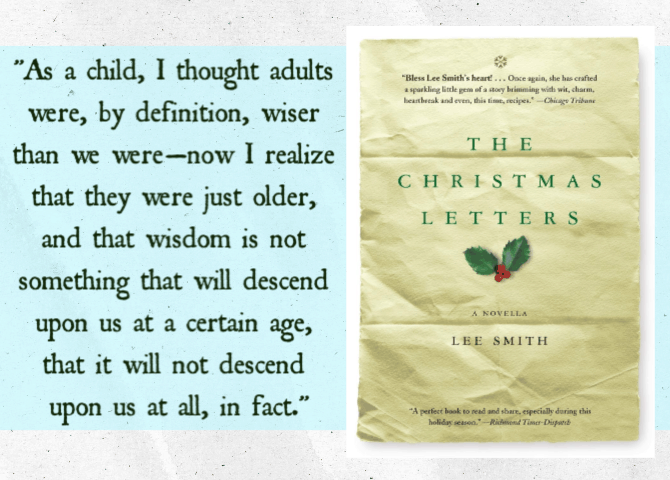
Have you read any of these titles? Is love to hear your thoughts!